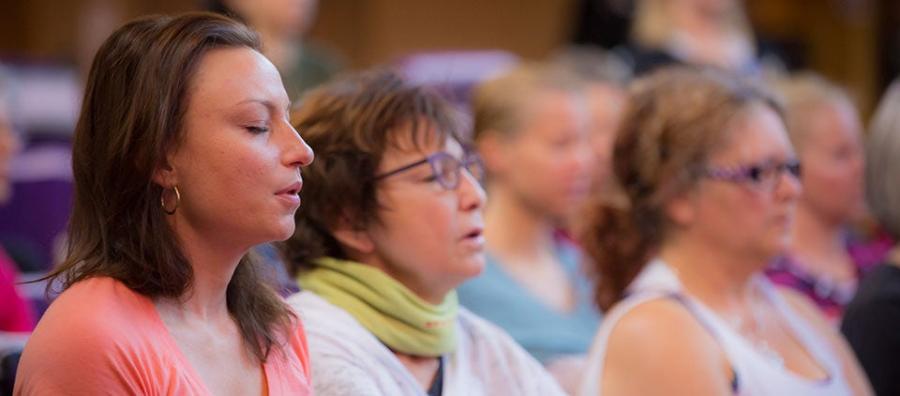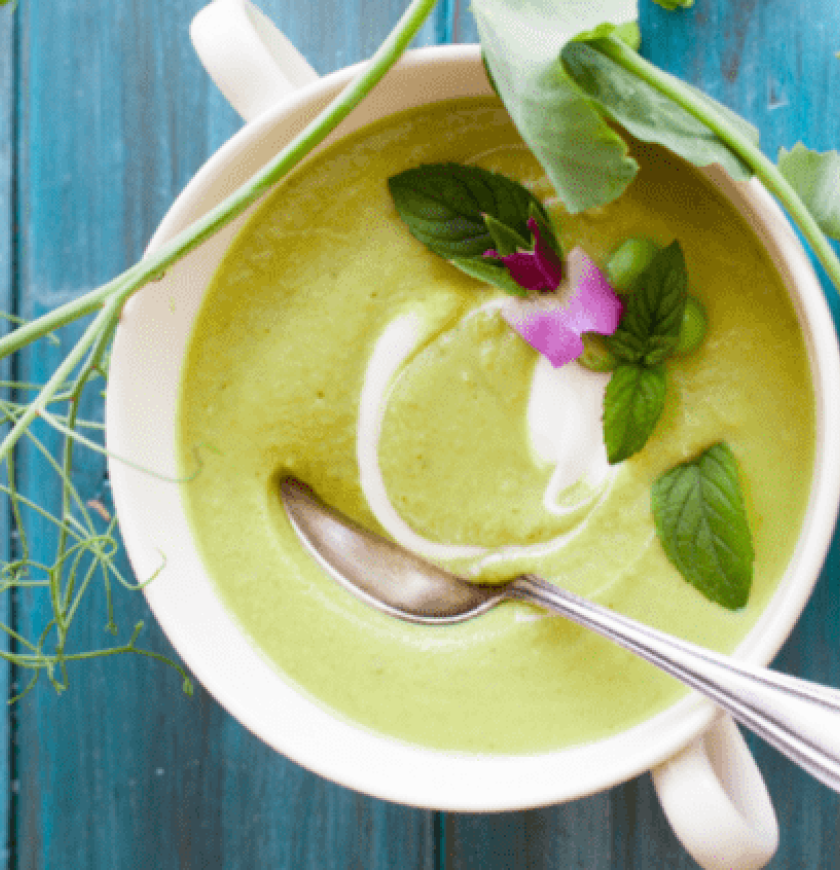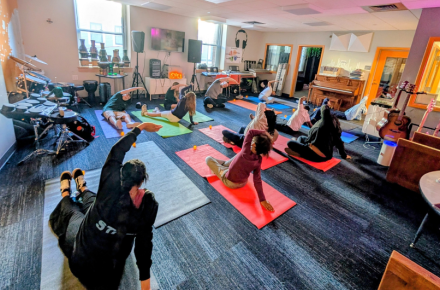Simple Strategies to Struggle Less and Savor More


I’ve been on earth long enough at this point to have accumulated a stockpile of experiences. I’ve lived in different parts of the country, gotten a graduate degree, been married and divorced, traveled internationally, created a national television show, and met people from all over the world. Looking back at my life thus far, I have to admit that many of my most delightful and pleasurable experiences have happened by surprise.
The times when I didn’t have a preconceived idea of how I wanted an event or an interaction to go have more often resulted in happy accidents—or at least smooth sailing. When I’ve had expectations of how I want events to turn out, I’ve more often experienced anxiety, frustration, and disappointment—in short, more struggle.
My self-evaluation would not surprise Aruni Nan Futuronsky, Legacy Faculty and life coach at Kripalu. “Wanting the moment to be different from what it is,” she says, “is the source of our suffering. We struggle because we don’t accept life as it is. We have our picture of the moment and we superimpose our idea of what we want on top of it. But reality always wins.”
Aruni says that life will inevitably push our buttons in order to help us grow, but if we live in resistance to reality, life becomes that much harder. “I once heard someone say, ‘Pain is mandatory, but suffering is optional,’” she says, “and it’s so true. When we breathe and relax around our challenges and our reactions to them, it makes such a huge difference.”
In order to savor life more and struggle less, Aruni says, we can change our habitual patterns that aren’t working for us. “We can create new neuro-pathways in the brain,” she explains. “We can pause before taking action and make a new choice.”
Here are some of her favorite strategies for struggling less and savoring more.
Mindful Compassion
“This is Self-Observation Without Judgment,” Aruni explains. “It’s cultivating the capacity to notice our behavior and accept it as is. Then everything becomes possible.”
We might want to lose weight, but chastising ourselves for grabbing a chocolate chip cookie only compounds the struggle—as does mindlessly devouring a bag of them when we’re stressed. Instead, Aruni suggests becoming mindful when the urge for cookies rears its head. “Ask yourself what you’re really hungry for,” she says. “What’s missing from your life besides sugar and carbs? Mindfulness is the key, but you really need to be there and be aware in order to make a change.”
Right Use of Will
“We have to bring unity between what we want and our actions,” Aruni says. “Along with radical self-compassion, we have to take actions that support what we want.”
Rather than making a list of all the things we think we should be doing, she suggests that we listen to the longing of our hearts. “Let your intentions come from inside rather than outside,” she suggests. “It’s a yogic reframe. Ask your heart what it wants and then use the mind to support it. There’s less struggle that way.”
Conscious Communication
“So much of the strife of life comes from our interactions with other people,” Aruni says. “When we consciously practice communicating, we struggle much less.”
If we’re honest, many of us might admit that rather than listen fully in conversations, we often think about what we want to say once the other person stops talking. Rather than give people the gift of our full attention, we try to offer solutions and advice that will fix their problems. “It’s stressful and ineffective,” Aruni says.
The next time you’re in a conversation with someone who’s sharing a problem, Aruni suggests listening more mindfully and pausing before giving in to the impulse to offer your opinion.
Meditation
“Discovering the type of meditation that fits into your life and supports your personality type can be the key to managing stress and enjoying life more fully,” Aruni says.
There are many options besides traditional seated meditation. For example, walking meditation that incorporates a mantra (a repeated affirmation or intention) is a powerful way to bring presence and relaxation into your day. “While walking in a shopping center or heading toward a meeting at work, having the tether of mantra that’s in sync with your body’s movement is calming and soothing,” Aruni explains. “The mantra quiets the mind, reduces anxiety, and allows you to relax into the moment rather than fighting against it.”
Aruni acknowledges that implementing strategies like these into our lives is a process, but she promises that the investment is worth it. “One of the most amazing gifts we can give ourselves is the gift of changing our outworn patterns,” she says. “Eventually, you’ll start to feel a sense of freedom. You’ll sleep better. Your relationships will improve. More possibilities will emerge. When you recalibrate the way you relate to the moment, you will be amazed at what life has in store for you.”
Find out about upcoming programs with Aruni Nan Futuronsky at Kripalu.




















































